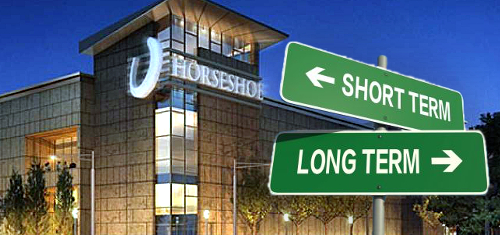 New research indicates that casino gambling expansion provides only a short-term revenue boost for cash-strapped US states, in part because of growing market saturation.
New research indicates that casino gambling expansion provides only a short-term revenue boost for cash-strapped US states, in part because of growing market saturation.
On Tuesday, the Rockefeller Institute of Government issued a new Blinken Report titled State Revenues from Gambling: Short-Term Relief, Long-Term Disappointment. The report claims that states pondering gambling expansion should be aware that “in the long run, growth in state revenues from gambling activities slows or even reverses and declines.”
The report examines the three main methods by which states authorize gambling: lotteries, casinos and racetrack casinos (aka racinos). Adjusted for inflation, the report claims lottery sales fell 0.7% in 2015, the second straight year of falling figures, with 27 states reporting declines.
Combined revenue from casinos and racinos grew 1.1% in 2015 but most of this growth was driven by Maryland and Ohio, which both saw new facilities open last year. Between 2008 and 2015, inflation-adjusted state tax and license revenue from casinos/racinos fell 1.5%. Revenue grew by $1.3b in states with new casinos, while states with established casinos suffered a $1.4b decline.
The authors note that states traditionally look to expand gambling in the wake of an economic slowdown, pointing to the more than a dozen states that authorized new forms of gambling following the 2008 recession. But the report claims that “the more gambling expands, the more likely it is that economic and revenue gains will be eroded due to competition.”
Nearly one-third of all US casinos and more than half of racinos were opened in the last decade and many more venues are in the pipeline, particularly in the northeast region. Massachusetts has three major resort casinos in development, while New York has issued three new licenses and New Jersey voters may authorize two casinos outside Atlantic City via a referendum in November.
